The dust storm blew ferociously all night, cruelly slamming sand laden winds against our guest room windows. As the storm wailed and moaned, I laid awake thinking of the long lost souls of the Taklamakan. Like Colin Thubron, you could go quite mad imagining it was the eerie howling of the legendary Taklamakan ghostly women who supposedly seduced men from their tents, enticing them to search endlessly through the unforgiving desert; never to be seen again. We had experienced an "apparition" in the Taklamakan Desert on our journey through central China from Golmud to Dunhuang in 2007 (refer "The Distant Chinas" travelogue). A lonely, heavily shrouded camel rider with a Kalashnikov casually swung across his shoulder, flashing eyes just visible, had appeared from nowhere. And suddenly disappeared without a trace, leaving us looking at each other in astonishment. Perhaps reality is indeed fragile in this strange and fearsome place?
The vicious winds were still blowing at dawn. The sun's pale rays could barely penetrate the dust and visibility was down to around 100 meters. We watched as the workers rose for the day, emerging from their corrugated iron cocoons then thrusting their thin bodies into the headlong wind toward their trucks to face another relentless day working in the oil fields.
We left Tazhong very early, probably to avoid driving in the dead heat of the day through the remainder of the Taklamakan Desert to our next destination of Korla - a distance of 458 kilometers. The dust consumed us. You could not avoid it. It blocked visibility of the massive surrounding sand dunes and penetrated through the car into our hair, clothing and luggage. Looking at our fawn, powder coated, somewhat worse for wear baggage, I envisaged an amusing scene of us arriving shabbily dressed and dirty in the grand Shanghai Sofitel Hyland Hotel, checking in at the Club Lounge alongside elegant hotel guests with their Gucci label luggage and designer clothing. Oh well, I guessed it would all clean up in time. I was really more concerned about our miniature paintings we had brought all the way from Esfahan, Iran through Pakistan and along some of the roughest roads and worst dust we had ever experienced. Alan had carefully nursed them all the way and we had painstakingly ensured as much as we could that they stayed out of direct heat. But they had, had a very rugged trip.....
Majestic buff dunes with razor sharp crescent curves surrounded the highway. We could only just see them and sadly it was not possible to obtain good photos. Everything was clouded in a buff coloured haze, including our poor camera and us. Huge whirly winds circled us, skipping fancifully across the desert sands, picking up a remarkable speed and then disappearing. These were what Lonely Planet Guide described as the "Dust Devils of the Desert".
Some hours of driving later and close to the Tarim River, we came across a strange forest of what appeared to be mainly dead trees. They were the famous ancient desert poplars of the Taklamakan. These "Three Thousand Years Trees" we were told take one thousand years to grow to maturity, were able to live for one thousand years and then take one thousand years to break down. Starkly grotesque yet curiously ethereal, in the desert heat and haze with their gnarled and contorted limbs, they strangely became giants dancing. Were they the real desert devils? Sabir pulled our car over to the side of the highway so we could walk amongst them. In the howling lunar dust storm in the middle of the Taklamakan Desert you could have been on another planet. The forest was hauntingly beautiful. Just to think that some of these trees were around at the time of the birth of Christ was mind blowing. Petrified tree devils lost in time.
Poplar vegetation gave way to sparsely grassed and then mostly barren land. Large mounds covered in scrub and low tree vegetation, in the middle of acres of bare earth intrigued us. Were these hairy lumps plots of deeper soil that somehow retained moisture and enabled plant life? We had no idea, and we were not to find out. They were incredibly obvious and fascinating.
Our first stop was at Xortanglik, right in the middle of the Tarim Basin oil and gas fields. A sad little town, Xortanglik comprised basically a one street ramble of impoverished looking markets and restaurants. We had not eaten breakfast so it was a welcome break and a stop for some food. The cafe seemed to serve only rather substantial full meal dishes and since neither of our stomachs was feeling marvellous, we decided to share a lamb kebab. Apart from being salty and fatty, it was a bit hard to enjoy eating while we sat overlooking the bloody carcass of a recently slaughtered ovine relative that hung as some sort of advertisement in the open air courtyard of the restaurant.
As we were leaving a pretty Uighur woman with a young child approached us. Looking no older than a child herself, she made much of having her baby's photo taken. We were more than happy to do so, but in fact were much more interested in photographing her rather than her child. Even though the young woman was very shy she went out of her way to be friendly to us foreigners. And again, we were most impressed with the friendliness of the Uighur people.
Crash, bang, thump! Our car suddenly became air born after encountering the biggest and deepest ditch imaginable on the road just out of Xortanglik. The impact was so severe that my head hit the roof of the car while Alan was sent sprawling across the floor. Somewhat concussed, I remember uttering some pretty bad expletives. Alan just looked stunned. Neither Sabir nor Abdulrahman said a word so we didn't ever find out what caused the impact. But we did ensure that from then on we wore our seat belts. Why we had not worn them was beyond us. It is illegal in China for the driver and front passenger not to wear seat belts but not for the rear passengers. It was no excuse for us however, especially coming from such a strong seat belt wearing culture.
Our journey from Xortanglik to Korla was through drab industrial countryside, the home of gas and oil production and the source of piped natural gas from Xinjiang Province to all of China. The trip was long and tedious, and the dust storm did not ease. The main motorway had not yet been completed for the entire route and so Sabir had to keep returning back to old roads and then re-joining the highway, frequently getting lost in the process. Over the last four days, he and Abdulrahman had driven very long distances and the continual delays and ridiculous speed restrictions must have been even more frustrating for them. However, unlike Alan and me, they showed no sign of impatience.
Nearing the city of Korla, we passed a terrible accident. A tourist bus must have collided with a motor-bike and its trailer. The bike was upside down under the bus and the laminated bus windscreen was totally shattered and caved in by around a meter into the driver's compartment. It was impossible to see how anyone connected with the motor bike could have survived. The accident must have just happened as passengers were disembarking from the bus, all looking like they were in deep shock. Nothing could be seen of the motor bike rider. It was another wake up call to ensure our seat belts were tightly fastened at all times.
We arrived in the city of Korla in the late afternoon. On a better day I'm sure the city would have looked a lot more impressive. But the darkness of the dust storm created a sombre and somewhat uninspiring sight, as we drove through the heavily industrialised outskirts to the city centre. Central Korla comprised moderately high rise buildings, interspersed with apartments and park lands along tree lined streets.
Korla, is the capital of Bayingolin Mongol Autonomous Prefecture of Xinjiang Province. With an area of 462,700 square kilometers, it is the largest prefecture in China and is actually larger than the total area of France. Korla is a medium sized city of some 420,000 people on the Konqi (or Kongque) River some 500 kilometers by road south of Urumqi (only about 200 kilometers as the "crow flies") at the southern base of the famous Tian Shan Mountains. The majority of the population are now Han Chinese (57.5%) with Uighur peoples the second largest ethnic group (32.7%) and the remainder comprising minority groups of the Hui and Mongol peoples.
Its central location, abundant water supplies and proximity to the more recently exploited oil and gas fields of the Taklamakan Desert has resulted in considerable growth and prosperity for the city of Korla. It is also home to the huge operational centre for PetroChina's exploration in Xinjiang Province.
Our Silver Star Hotel appeared to be very new and was well located in the city centre. In fact it was very impressive with a gorgeous foyer area and very comfortable rooms. To our delight we had a refrigerator and a television that boasted some 165 stations. The guest information book also looked very impressive, listing a number of in-house restaurants, even an English one. There was also room service with a very nice looking menu. Ahh, what a relief to have some luxury.
Our relief was short lived however. Of the numerous television stations, none were English channels. Well, that was OK. And well, the restaurants were not open and no-one in the hotel appeared to speak English. We decided to try the restaurants a little later in the day. Best not to be too disenchanted so soon after we arrived, we thought......
Our usual mission was to find some beer and a light snack. One lamb kebab between two was certainly not filling, and by this time we had both lost a lot of weight and were looking like our friend Frank Pidcock's well loved description of "racing maggots". Miraculously, we found a beer shop just opposite our hotel. By then it was late in the day and after days of travelling long distances, we were tired and decided not to do any exploring of what appeared to be a rather nondescript city. In fairness however, we did not see much of the city at all that day and so, were really unable to make a fair assessment.
Finding a place to eat became our usual challenge. The hotel staff was wonderfully friendly and helpful but it soon became clear that we were not to be able to dine in the hotel. We could, however, order room service we were told from one of the staff who could speak a little English. After many attempts to order over the phone Alan, in desperation went down to reception to see if he could order by pointing to the menu. Goodness knows what he communicated but very soon a young woman appeared at our room asking us if the room was too hot!
At 9.30 pm we had almost given up on our "order" when to our utmost surprise a hotel staff member delivered our meals. It didn't matter that our mushroom soup was cold or that the salmon was almost cooked to a cinder. Or even that our vegetable side dish was canned corn kernels in a lettuce leaf. We had a pleasant and well appreciated western meal in our very lovely room. And fell into bed.
Desert Devils of the Taklamakan
Wednesday, May 18, 2011
 Korla (Bayingol), China
Korla (Bayingol), China
Other Entries
-
29Love Affair with Rumbur, A Sick Jeep Trip to Buni
May 0612 days prior Buni, Pakistanphoto_camera9videocam 0comment 0
Buni, Pakistanphoto_camera9videocam 0comment 0 -
30Insight into the Life of the Lost Kalasha People
May 0612 days prior Buni, Pakistanphoto_camera8videocam 0comment 3
Buni, Pakistanphoto_camera8videocam 0comment 3 -
31More Photos of the Kalasha Peoples
May 0612 days prior Buni, Pakistanphoto_camera14videocam 0comment 0
Buni, Pakistanphoto_camera14videocam 0comment 0 -
32Tandoori Chicken, Potatoes & Eggs at Shandur Pass
May 0711 days prior Gupis, Pakistanphoto_camera23videocam 0comment 0
Gupis, Pakistanphoto_camera23videocam 0comment 0 -
33You Want More.....? Are You Sure.....?
May 0810 days prior Gilgit, Pakistanphoto_camera14videocam 0comment 1
Gilgit, Pakistanphoto_camera14videocam 0comment 1 -
34Heaven on Earth at Eagle's Nest Hotel, Duikar
May 099 days prior Duikar, Pakistanphoto_camera19videocam 0comment 1
Duikar, Pakistanphoto_camera19videocam 0comment 1 -
35The Solitude of a Dawn in Duikar
May 108 days prior Karimabad, Pakistanphoto_camera10videocam 0comment 3
Karimabad, Pakistanphoto_camera10videocam 0comment 3 -
36Photo Gallery of Karimabad and the Hunza Area
May 108 days prior Karimabad, Pakistanphoto_camera22videocam 0comment 2
Karimabad, Pakistanphoto_camera22videocam 0comment 2 -
37Our Man From Waziristan or "Titanic!"
May 117 days prior Sost, Pakistanphoto_camera20videocam 0comment 0
Sost, Pakistanphoto_camera20videocam 0comment 0 -
38A Public Bus Over the Khunjerab Pass Into China
May 117 days prior Khunjerab Pass, Pakistanphoto_camera21videocam 0comment 0
Khunjerab Pass, Pakistanphoto_camera21videocam 0comment 0 -
39Our Top Tips for Crossing the Khunjerab Pass
May 126 days prior Khunjerab Pass, Chinaphoto_camera2videocam 0comment 0
Khunjerab Pass, Chinaphoto_camera2videocam 0comment 0 -
40At Home in Lovely Tashkorgan - We Find Hunza Man
May 135 days prior Tashkorgan, Chinaphoto_camera12videocam 0comment 0
Tashkorgan, Chinaphoto_camera12videocam 0comment 0 -
41Two Taxis and a Slow Trip to Kashgar
May 144 days prior Kashgar, Chinaphoto_camera10videocam 0comment 0
Kashgar, Chinaphoto_camera10videocam 0comment 0 -
42Evocative Old Kashgar
May 153 days prior Kashgar, Chinaphoto_camera8videocam 0comment 0
Kashgar, Chinaphoto_camera8videocam 0comment 0 -
43Photo Gallery of Kashgar
May 153 days prior Yarkand, Chinaphoto_camera18videocam 0comment 0
Yarkand, Chinaphoto_camera18videocam 0comment 0 -
44Southern Silk Road - Tracking the Taklamakan
May 162 days prior Keriya (Yutian) , Chinaphoto_camera16videocam 0comment 0
Keriya (Yutian) , Chinaphoto_camera16videocam 0comment 0 -
45Tazhong - Drawing Chickens in the Taklamakan
May 171 day prior Tazhong, Chinaphoto_camera23videocam 0comment 0
Tazhong, Chinaphoto_camera23videocam 0comment 0 -
46Desert Devils of the Taklamakan
May 18 Korla (Bayingol), Chinaphoto_camera11videocam 0comment 0
Korla (Bayingol), Chinaphoto_camera11videocam 0comment 0 -
47Toward Urumqi - Siamese Mountains and Wind Farms
May 191 day later Urumqi, Chinaphoto_camera3videocam 0comment 0
Urumqi, Chinaphoto_camera3videocam 0comment 0 -
48A Day in Urumqi and The Fabulous Erdaoqiao Markets
May 202 days later Urumqi, Chinaphoto_camera6videocam 0comment 0
Urumqi, Chinaphoto_camera6videocam 0comment 0 -
49R & R in the Extraordinary City of Shanghai
May 213 days later Shanghai, Chinaphoto_camera10videocam 0comment 0
Shanghai, Chinaphoto_camera10videocam 0comment 0 -
50A Remarkably Unremarkable Journey Home
May 235 days later Crowdy Head, Australiaphoto_camera1videocam 0comment 1
Crowdy Head, Australiaphoto_camera1videocam 0comment 1

 Korla (Bayingol), China
Korla (Bayingol), China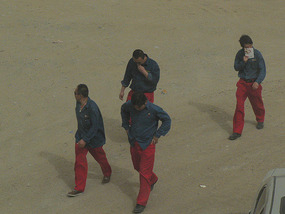

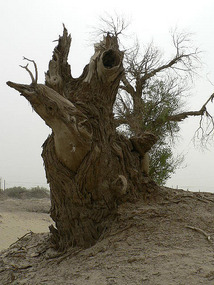
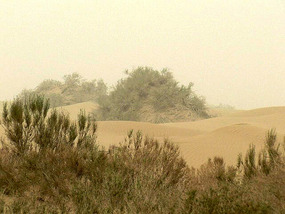
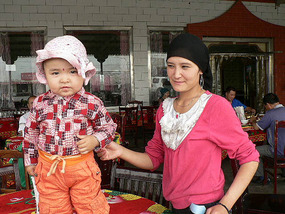
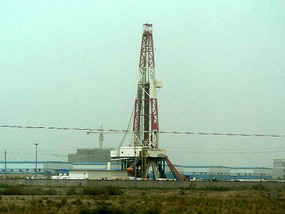
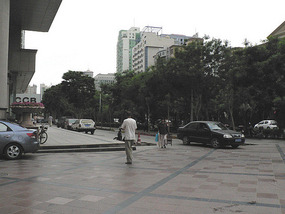
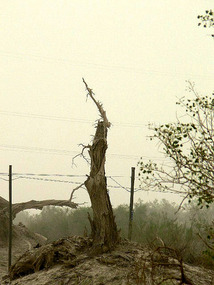
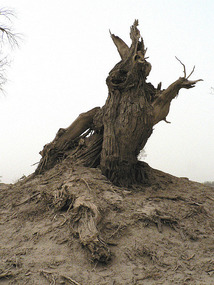
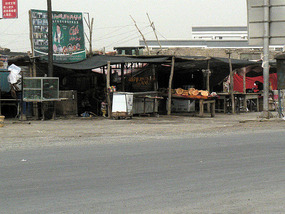
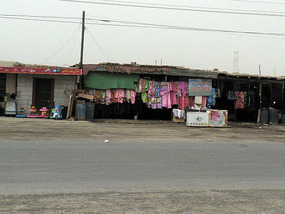



2025-05-22